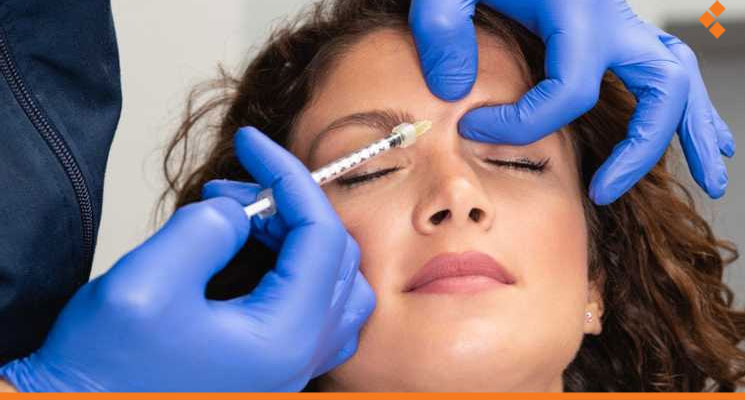In Syria, Botox and fillers have gained significant popularity among women, and even men, as sought-after cosmetic procedures to address signs of aging and enhance appearance. Despite the steep prices associated with these treatments, their demand has grown rapidly, transcending social classes and becoming more widespread.
Advancements in the field of cosmetic procedures are occurring rapidly, with new trends emerging periodically. Some of the prominent trends in Syria include “mesotherapy,” which involves injections of freshness; “PRP” or blood plasma injections; and “fractional laser,” used for skin peeling.
Dr. Walaa Jamoul, a dermatology specialist from Sama3t Hakim’s team, explains that Botox is derived from a substance called botulinum toxin, obtained from the bacteria Clostridium botulinum. When injected into muscles, it temporarily paralyzes their movement, effectively reducing wrinkles and signs of aging. Botox has cosmetic applications, as well as therapeutic uses in dermatology for excessive sweating and in neurology for migraines. The recommended age for Botox injections depends on the indications, with early intervention advised to prevent the formation of static wrinkles in the future.
Regarding fillers, Dr. Jamoul clarifies that hyaluronic acid is commonly used, as it enhances volume. Fillers are strategically injected to improve the external appearance, such as augmenting lip size or addressing other cosmetic concerns. The appropriate age to undergo these procedures, according to Dr. Jamoul, is when a woman is capable of making an independent decision.
The high prices associated with Botox and fillers in Syria are primarily attributed to importation costs and the general pricing of medications. These factors contribute to the financial burden on individuals seeking these treatments.
Dr. Jamoul also explains the details of mesotherapy, which involves injecting amino acids and minerals into the skin to provide freshness and a lighter complexion. Additionally, she discusses plasma injections, where plasma is extracted from a patient’s blood and then injected into the skin to treat various skin issues like uneven tone, acne scars, melasma spots, and hair loss. Plasma injections are considered affordable and effective skin treatments, often used in combination with fractional laser treatments for better results.
While these procedures are generally safe, Dr. Jamoul emphasizes the importance of practitioners being experts in performing them.
Dareen, a woman in her forties, shares her personal experience with Botox injections on her forehead to address emerging lines. Despite the high prices, she manages by budgeting and aligning the timing of her injections with financial solutions. However, her salary does not fully cover the cost, as the injections amount to over 250,000 Syrian pounds.
Zubaida, on the other hand, had to take out a bank loan to undergo laser hair removal, a procedure that requires multiple sessions. Each session costs 40,000 Syrian pounds for one area of the body. She emphasizes the importance of plastic surgery to her, prioritizing it over basic necessities due to the significant transformation it can bring to a woman’s appearance.
A visit to various cosmetic centers reveals variations in prices, which can be attributed to two factors: the source of materials and the quality of customers and regions.
According to an unnamed doctor working at a cosmetic center in Damascus, Botox injections range from 200,000 to 400,000 Syrian pounds. The price of fillers varies based on their type, starting from 200,000 Syrian pounds per centimetre. There is also an excellent first-class Korean filler priced at 300,000 Syrian pounds per centimetre, with over 700,000 options available.
Skincare sessions start at 75,000 Syrian pounds and increase depending on the materials
This article was translated and edited by The Syrian Observer. The Syrian Observer has not verified the content of this story. Responsibility for the information and views set out in this article lies entirely with the author.


